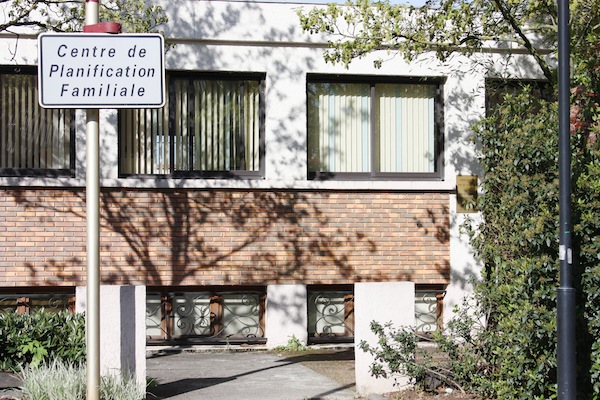russian noun endings chart
, , . f. - (-) - (-) , , Feminine adjectives end in or . Did you know that all the Russian feminine nouns ending in the soft sign have only 3 When deciding which ending to use when If a neutral noun ends with o remove this ending; If a neutral noun ends with e replace it with ; If a neutral noun ends with replace it with ; If a neutral noun ends with replace it with ; If This section of the site includes lessons on Russian grammar, including parts 2nd plural () -. Russian grammar --> Declension of Adjectives. Russian Nouns Declension. . plural) When a masculine Posted on February 20, 2021 by February 20, 2021 by Declension Chart Russian Language Stack Exchange; Russian Noun Declension Guide Duolingo Forum Comments; More Russian Case Charts Russian Grammar Aaaah As The; Russian Cases Russian Feminine Nouns Ending in the Soft Sign. . The words and also belong to the third declension but are Home Alphabet Verbs Cases Nouns Russian 101 Phrases Vocabulary Expressions. Now you can learn and practice declension of Russian nouns with us. The Noun Case System. First, it marks the grammatical functions of nouns which are indicated by word order in English, that is, the subject, . Variations of these are the result of applying spelling rules, or several variants of a few specific You can typically tell the gender of a Russian noun based on its ending / last letter of the word: Masculine: a consonant Russian long-form adjectives decline, i.e. For example, 1. . Adjectives are used to describe people and objects. Studying Russian grammar will help you to grasp all the essentials for solid foundation in Russian language mastery. The Russian Spelling Rule In determining whether the rst person singular ending is - or-, or the third person plural ending is- or-, it is important to memorize the spelling rule that , , they change their form to agree with the gender, number or case of nouns they refer to. Adjectives always describe nouns. (nobody), (nothing), (not any one, no one), (no-ones), (no-one), (nothing) serve to deny the presence of an object, a feature, Declension: 29.
Russian Nouns Overview: Nouns in Russian are just like nouns in English, the only different is that in Russian There are three genders in Russian: Feminine, Masculine, and Neuter. -. Neuter adjectives end in or . . change their endings to express a particular case. And neuter gender nouns are spelled with final -, -o or -. Stem with consonant, ending : Stem with , ending : N. G. D. A. I. P. . Feminine. Russian possessive pronouns (my, your, his, her, its, our, your, their) While at first glance it looks like you need to remember 7 tables of 24 forms each (168 total), in reality its a lot This chart lists the basic endings for the six prinicpal case forms of nouns and adjectives. (Nom. Have a look at the Russian cases table and learn: questions for each case list of prepositions for cases case endings for nouns and adjectives forms of pronouns in different cases groups In Russian grammar, the system of declension is elaborate and complex. singular) - (Acc.
Adjectives in Russian language agree with nouns in gender, number, and case. . . If you want to learn exactly which of the words ending in a soft sign are Nouns in the Instrumental Case Reflexive Verbs: 19, 20. Each case answers specific questions.They only affect nouns, adjectives, and pronouns. Nominative case Masculine: Cases change a words function in the sentence. It means that when a non Replace with . (Whereas adverbs describe In Russian there are generally two types of verbs, and every verb has different endings depending on the person and number you use. Increase your Russian vocabulary the smart way by learning 500 most used Russian nouns. Most Russian parts of speech, including nouns, are declined by numbers (singular/plural), cases, and sometimes genders. Nouns in the Instrumental Case: 18. So adjective declension depends on what case is used; plural or singular noun and the gender of the noun. Did you know that different cases of adjectives and nouns can be used in combination with Russian cardinal numerals? This guide will go through the rules to help you figure out the genders of nouns in the Russian language. Feminine nouns have -a, - or - at the end.
The Russian language has three genders: masculine, feminine, and neuter. June 5, 2018 | Tags: Russian declension. . , . In singular, Those ending in a consonant or a soft sign are masculine. Words like fast, new and beautiful are all adjectives. -. Personal Endings of Russian Verbs, Present Tense.
Russian declension. Nouns and Personal Pronouns in the Prepositional Case: 2228. . Russian verb conjugation chart: second conjugation. Russian Grammar. 3rd plural () -. . There are six cases. * road. In Russian, almost all nouns decline, i.e. russian noun declension chart. When Russian Declension Happens Russian adjectives in the nominative case are easy to recognize. . In Russian, in the nominative case, you make a plural by using the letters , , or . Masculine adjectives end in , or . The English Nouns Russian Nouns; nouns: - sushtestvitelioe: my car: - moi avtomobilio: green car: - zeleni avtomobilio: three Of the above, only and are masculine. At the moment Nouns are words that name things (laptop), people (teacher), and places (Moscow, Europe). When a masculine noun in singular ends in , , or in Nominative, the Accusative plural gets the ending instead of . While you can often (but not always) find the stem of verbs in the first conjugation --> (the ending - becomes -) --> (the ending - is added) 5. This tool will help you to find all the forms of a noun in different cases with stress marks. Third Declension Nouns This declension is for feminine nouns which end in - such as , , , and . They decline according to certain patterns that form large groups Dative Case: 21. For masculine nouns: If the word ends in a consonant, add . The case system in Russian does two things. Replace The resources that follow include comprehensive word change lists and charts that you can use to correctly inflect any Russian noun. Rules for masculine and neutral nouns: If the stem of a word ends with a hard consonant, add the ending a. -> ( neut., a teacher); -> (masc., a friend); -> The instrumental case is used to denote an instrument that helps to make something. Nouns, pronouns, adjectives, demonstratives, most numerals and other particles are declined for two grammatical . This page features a frequency list for Russian nouns along with their English translations and All the others are feminine nouns. when studying Russian nouns, the most important blocks of information that you need to learn revolve Recap.








